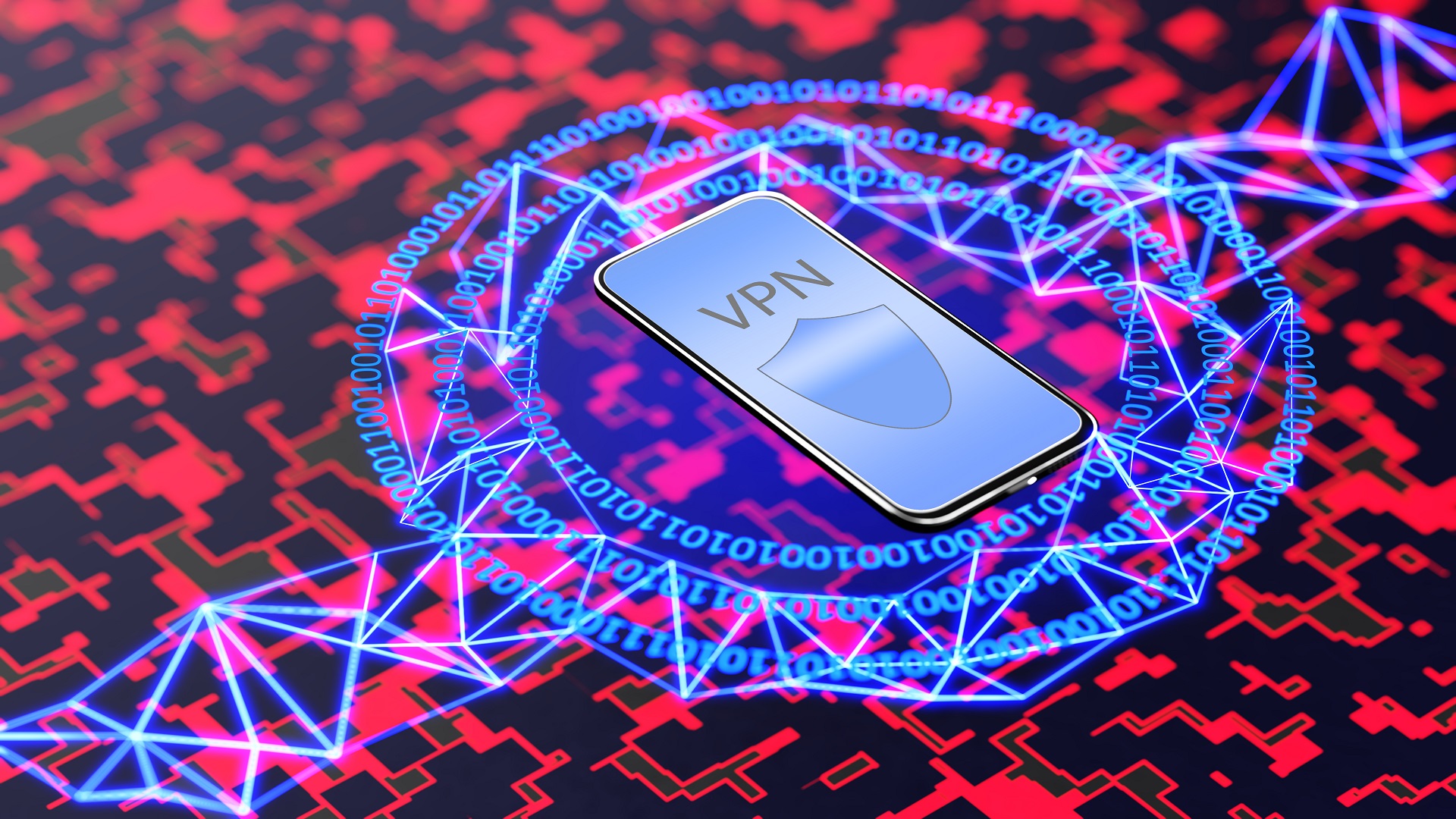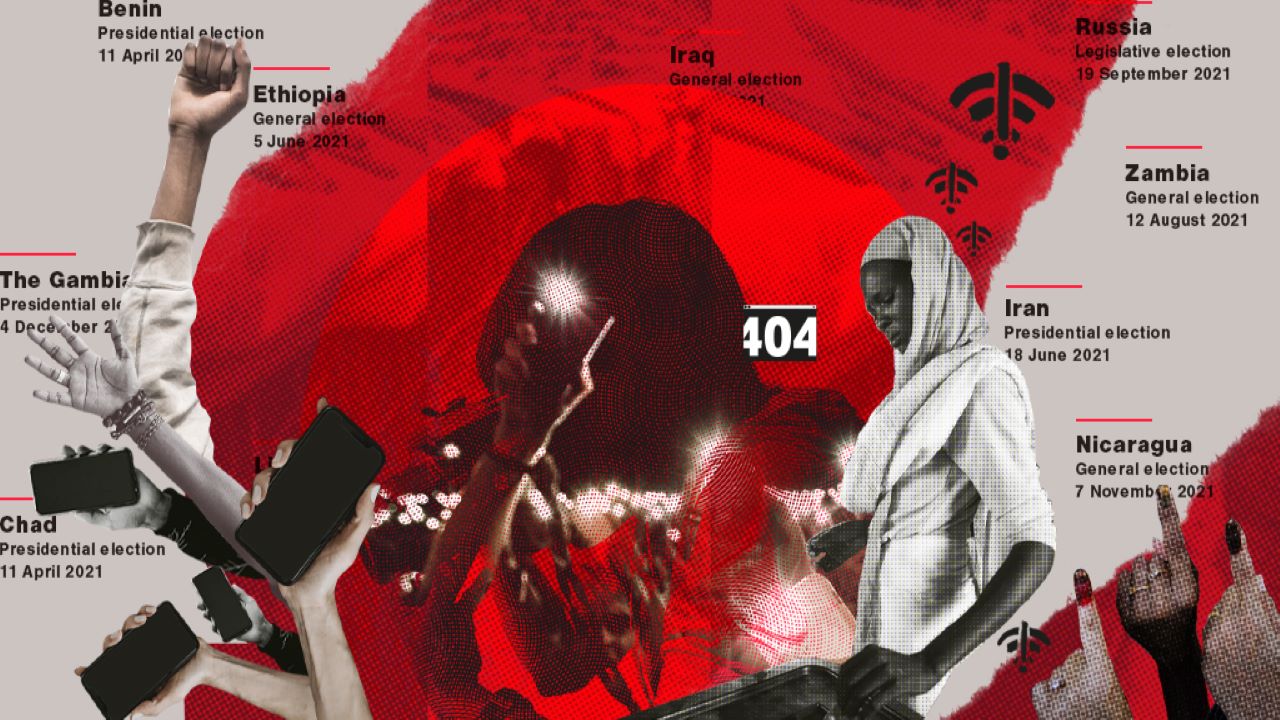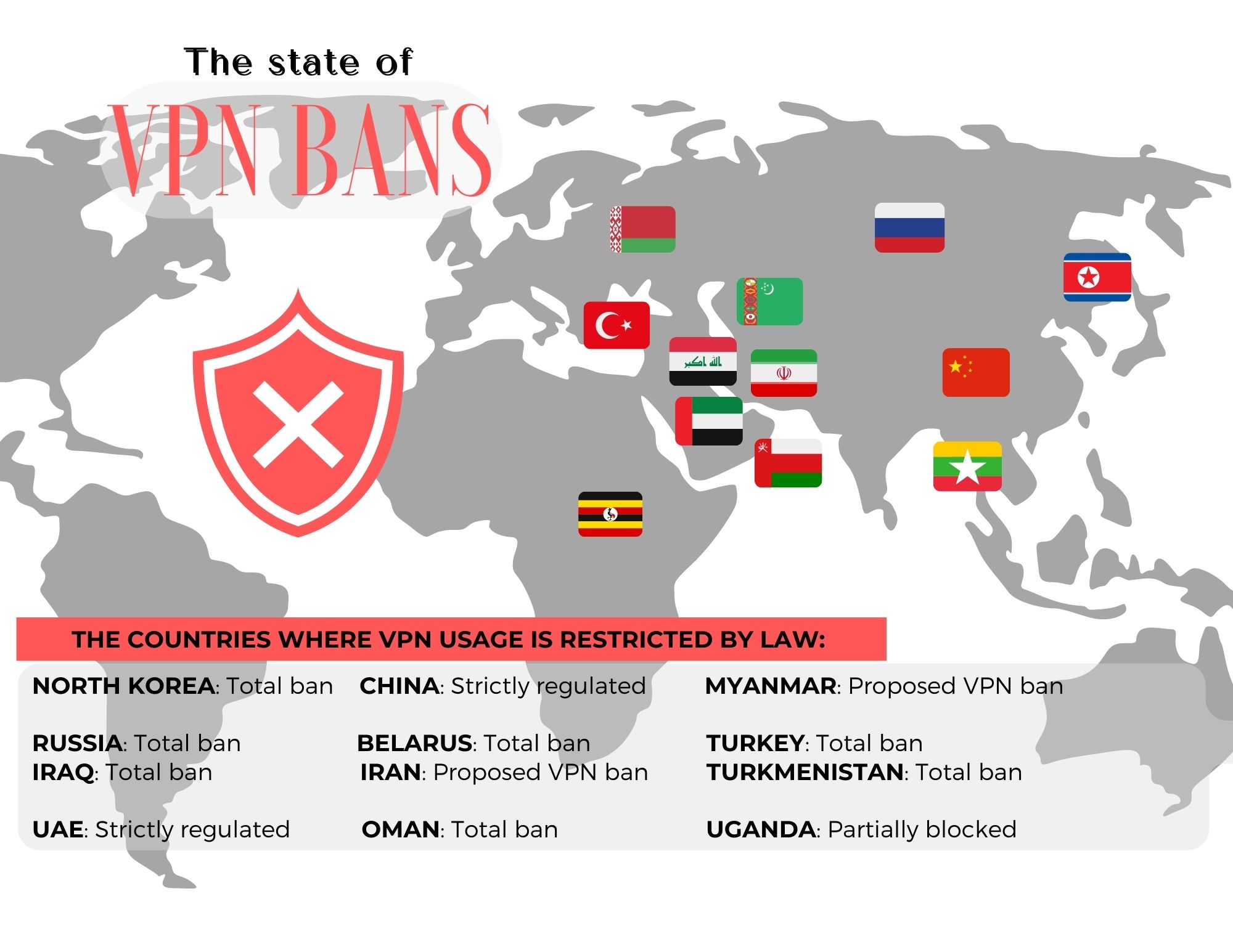A VPN for #KeepItOn: How tech can mitigate internet shutdowns
The #KeepItOn coalition has been fighting shutoffs since 2016

Eleven years ago saw the first time ever that a country's entire internet went dark. It was 2011 - in the midst of the Arab Spring unrest - when Egyptian citizens couldn't access the web for five long days.
Now, internet shutdowns are becoming common practice among authoritative governments worldwide. And VPNs have emerged as one of the best weapons for fighting back against this worrying trend.
“Since we began tracking government-initiated internet shutdowns, their use has proliferated at a truly alarming pace,” said #KeepItOn Lead Felicia Anthonio to Jigsaw - the Google unit exploring digital threats to societies.
A project run by digital rights NGO Access Now, the #KeepItOn coalition started its battle against internet shutdowns in 2016. The group documented at least 564 blackouts around the world between 2018 and 2020.
What is #KeepItOn?
#KeepItOn is a global coalition promoted by Access Now which has been fighting internet blackouts since 2016. Around 280 organizations across 105 countries are now engaged in the battle. Even big tech companies like Twitter are among those actively supporting the initiative.
#KeepItOn Lead Felicia Anthonio told us: "The coalition has seen incredible membership growth which brought the campaign to all corners of the globe.
"We continue to sustain momentum and mobilize stakeholders to push back against shutdowns, and effectively document, monitor, and report internet shutdowns and their impact on human rights worldwide."
Are you a pro? Subscribe to our newsletter
Sign up to the TechRadar Pro newsletter to get all the top news, opinion, features and guidance your business needs to succeed!
The group constantly monitors internet shutdowns across the world, delivering its findings through accessible reports and graphics. They also engage in grassroots advocacy, direct policy-maker engagement, technical support and legal intervention with the goal of preventing blackouts from taking place in the future.
We are deeply concerned by the blocking of Twitter in Nigeria. Access to the free and #OpenInternet is an essential human right in modern society.We will work to restore access for all those in Nigeria who rely on Twitter to communicate and connect with the world. #KeepitOnJune 5, 2021
In 2021, it launched the Election Watch project that focuses to protect the integrity of democratic processes during polls. "We recently published our 2022 list of elections we’re watching, and we hope to continue this in order to closely engage with governments, Internet Service Providers, companies, election observer groups, and other stakeholders in countries heading to the polls," said Anthonio.
The group also recently launched its Shutdown Stories project to amplify how internet shutdowns impact minority or vulnerable groups - such as women and girls, people with disabilities and LGBTQIA+ communities.
What is meant by internet shutdown?
An internet shutdown or blackout can be defined as an intentional disruption of internet and/or electronic communications with the intent of rendering them inaccessible or effectively unusable. They can target a whole population or only a specific location to control citizens' flow of information.
Authoritative governments across the world use them for different reasons.
Shutdowns can be used to undermine democratic practices during elections as happened in Uganda and Zambia in 2021, for instance. An internet blackout may be used to block news and footage of violent protests circulating outside the country. Some governments use the same tactics when national school examinations occur.

And 2022 hasn't exactly had a the best of starts for internet users across the planet. After only three months into the year, Access Now have already documented many shutdowns incidents. Among others, the internet in Kazakhstan, Burkina Faso, Ukraine, Russia, Yemen and India all went dark.
As Felicia Anthonio told us: "These shutdowns have taken place around public demonstrations or during active conflicts. For instance, authorities in Kazakhstan used shutdowns to quell protests and cover up state mandated violence.
"We’re witnessing the government’s digital stronghold tightening in Russia as a result of full-fledged state-imposed shutdowns and blocking of digital and media platforms, and international calls for Russia to be removed from the global internet."
6 main types of internet shutdown
- ISP Throttling: Occurs when the internet provider slows down the connections so much that it's impossible to load websites. This kind of government attack is also really difficult to identify.
- IP blocking: An IP address is a series of numbers that identifies any device on a network. ISPs can use them to carry out targeted shutdowns on certain sites and narrow regions. This tactic permits to exclude certain individuals from the block.
- Mobile data shutdowns: This is a shutoff that specifically targets smartphone connections. It's particular used in low-income countries where access to laptops and computers is limited.
- Downgrading mobile internet speeds: One of the most used tactics, authorities scale down internet connection speeds from 4G and 3G levels to 2G. This makes basically impossible for smartphones' users to access online content.
- Deep Packet Inspection (DPI): Commonly used for more sophisticated and permanent censorship strategies, it allows to block access to specific content instead the entire network. Governments can even alter the content of websites.
- DNS interference: So-called 'cache poisoning', attackers trick DNS resolvers into caching false information. It will then sends the wrong IP address to clients so that users will be directed to the wrong websites.
With active conflicts, planned elections and examinations, and the likelihood of protests and other unknown events springing up within the course of the year, authorities may be tempted to hit the kill switch throughout 2022.
Felicia Anthonio, #KeepItOn Lead
Governments often use a mix of these tactics to implement internet shutoffs. These can be directed to the whole country - so-called blanket shutdown - or be targeted on specific areas and/or platforms. The disruptions can take even the form of an internet access curfew.
It is also worth mentioning that in countries where blackouts and censorship have become a central element into the governments' agenda, more sophisticated and permanent control have been implemented - take the Great Firewall of China, for example.
How internet blackouts impact citizens across the world
As the internet is so central to people's everyday activities, a blackout can harm communities' well-being at different levels. By denying citizens’ access to information, they especially undermine democratic values and the work of journalists within the country.
A blackout over the web restrict people’s ability to work. This can have a strong impact on the worldwide economy, too. It has been estimated that more than 220 major shutdown occurred in 41 states between January 2019 and June 2021 cost the global economy almost $20 billion.
Being that web shutoffs are commonly used around period of social unrests and political instability, these have then the power to silence dissidents. They also make it more difficult for activists to organize public demonstrations.
Authoritative regimes may use shutdowns to hide severe human right abuses, like attacks on civilians. An Amnesty International's investigation on the Iran government found out how authorities used internet blackouts to cover up the killing of 300 civilian protesters in 2019. They also pointed out how these tactics have become a common strategy to mask heavy-handed tactics by armed forces.
Do you think it's even possible to completely shut down access to the internet in the age of #VPNs? #Russia's government has caused the most expensive internet shutdown of 2022 to date, according to Top 10 VPN.March 22, 2022
Not being able to access online resources may obstruct a fair access to education, too. This has been particularly acute with the Covid-19 pandemic forcing school to work remotely.
The pandemic also proved how shutdowns can endanger people's life, cutting off millions from life-saving health information. People in Myanmar, for example, were completely unaware of the existence of the virus months after the disease was already spreading globally.
Shutdowns also have psychological impacts, fueling social exclusion. They even impact vulnerable groups - like women or LGTBQ communities - in a disproportionate way.
New trends in internet blackouts
Access Now's 2021 report showed that the amount of government shutdowns imposed are growing year-on-year. In Myanmar for example, authorities imposed one of the world's longest recorded shutdowns in Rakhine and Chin states - it lasted 19 months and still continues intermittently to this day. While India retains the highest country score with 109 recorded shutoffs.
Felicia Anthonio explains that governments are employing ever-more sophisticated means to cut people off. Among those there are localized and targeted shutdowns, mobile shutdowns, and a widening scope that includes essential services such as email, Google documents, and VPNs. They’re also adopting legislations and policies to clamp down on fundamental rights.
She said: "With active conflicts, planned elections and examinations, and the likelihood of protests and other unknown events springing up within the course of the year, authorities may be tempted to hit the kill switch throughout 2022."
Using a VPN helps to mitigate internet shutoffs' impacts
If you are experiencing an internet shutdown, it is vital that you can stay informed as well as inform the world of what is happening to you and your country. The obvious tool for this job is a VPN.
Short for Virtual Private Network, a VPN is a software that anonymize your internet connections masking your IP address and location while locking your data inside an encrypted tunnel. Securing your online experience is exactly what you want if you are browsing under restrictive internet regulations as this makes difficult for authorities to identify who and where you are - you can learn more about what they are and how the work in our dedicated explainer to what a VPN is.
Once you connect your internet through a VPN, you can select one of the servers available - all the best providers have a vast array of servers all around the world. Your ISP will then be tricked to think that you are accessing the Web from a totally different location.
ExpressVPN is our #1 favorite VPN
Sitting at the height of our top VPN buying guide overall, ExpressVPN has an amazing reputation when it comes to bypassing government censorship and access banned apps and websites.
Equipped with some of the best security features, and a clean interface across a stream of devices, it's a no-brainer. Try it out with its 30-day money back guarantee risk-free trial.
As Access Now campaigner Felicia Anthonio pointed out, choosing a secure VPN which has been audited by a group of digital security experts is a non-negotiable element you should always make sure of.
Beside having an array of security features and a strict no-log policy secured by independent audits, both our top recommended providers ExpressVPN and NordVPN have a great reputation for unlocking banned websites and social media platforms.
And one of the cheapest VPNs around combining great price and quality, Surfshark boosts an integrated Noborders feature that is precisely built to make bypassing online censorship even easier.
Are VPNs legal to use?
Using a VPN service - either to bypass online censorship, increase your online security, unlock foreign catalog on streaming platforms or torrenting safely - is completely legal in most countries. Governments, companies and more and more everyday internet users secure their connections via these services on a daily basis.
However, every country has its own legislations that regulate VPNs usage.
As Anthonio says: "There have been extreme cases in a few countries where authorities have threatened to arrest people who use them or banned them outrightly with recent examples in Russia, Uganda, Tanzania and Iran.
"Introduction of repressive laws is a tactic governments continue to explore and use in order to control and curtail fundamental rights in the digital age. If left unguarded, these laws would allow governments to extend offline crack down to the online space which is a threat to every democratic society."

At the time of writing, at least 10 countries around the world VPNs are either tightly regulated (China, UAE), partially blocked (Uganda) or completely banned (Russia, Belarus, Turkmenistan, Iraq, Oman, Turkey, North Korea).
Or in the case of the proposed Protection Bill potentially being passed in to law, using a VPN will be a crime in Iran. The same situation could also happen in Myanmar, with up to three-year prison sentences for VPN users.
We recommend checking your country’s digital privacy laws on this point.
What's next?
Authoritative governments are refining their internet shutdowns tactics while implementing stringent regulations on the use of tools - like VPN and proxy - that help to mitigate their consequences. However, also campaigners are working hard to keep the matter among the global agenda's priorities.
The #KeepItOn coalition have managed to gain a strong influence within regional and international organizations. For instance, The United Nation's decision of adopting new internet shutdown resolutions and denouncing those when happen is an important step forward for the cause.
As campaign Lead Felicia Anthonio told us: "High level figures such as the UN High Commissioner for Human Rights and Special Rapporteurs have also called for an end to shutdowns, often citing our STOP (Shutdown Tracker Optimization Project) data in their annual reports to UN bodies.
"While we will continue to fight for fair, open, and accessible internet for all, the #KeepItOn will continue to closely monitor and equip people at risk with the necessary tools to be able to push back if they happen."

Chiara is a multimedia journalist committed to covering stories to help promote the rights and denounce the abuses of the digital side of life – wherever cybersecurity, markets, and politics tangle up. She believes an open, uncensored, and private internet is a basic human need and wants to use her knowledge of VPNs to help readers take back control. She writes news, interviews, and analysis on data privacy, online censorship, digital rights, tech policies, and security software, with a special focus on VPNs, for TechRadar and TechRadar Pro. Got a story, tip-off, or something tech-interesting to say? Reach out to chiara.castro@futurenet.com
